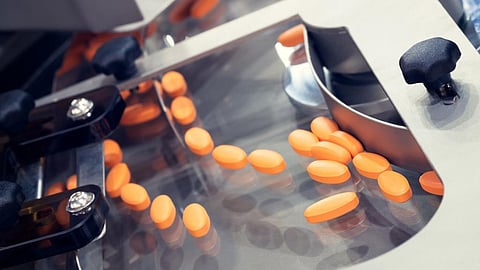AMR Awareness Week: Way forward for pharma companies to ensure antibiotics manufacturing doesn’t drive resistance
Antibiotics are a cornerstone of modern medicine, enabling humans to fight off a huge variety of dangerous infections, and it is critical that companies produce antibiotics in quantities enough to meet the world's needs.
Unfortunately, the process of manufacturing these lifesaving medicines can actually contribute to antimicrobial resistance (AMR), which is a multifaceted and growing challenge that threatens the efficacy of antibiotics in the face of rising drug resistance.
The overuse and misuse of antibiotics are well-known drivers of AMR, as is lack of access to appropriate antibiotics. However, the risk of AMR posed by the release of antibiotic waste into the environment is often overlooked.
Put simply, if waste generated from antibiotic manufacturing contains high levels of active pharmaceutical ingredients (APIs) when discharged into rivers and waterways, it poses a serious risk to the emergence and spread of AMR and can cause environmental harm. But by manufacturing responsibly, pharmaceutical companies can prevent this risk.
Moreover, pharmaceutical companies are some of the largest players across antibiotic manufacturing supply chains, and the steps they take to prioritise responsible manufacturing practices can have a transformative impact across these supply chains.
AMR Awareness Week is observed from November 18-24 every year.
Three clear ways
Through our dedicated AMR Programme, the Access to Medicine Foundation tracks and scores the efforts of major pharmaceutical companies to address AMR in the AMR Benchmark, including assessing whether they are engaging in responsible manufacturing practices for their antibiotics and antifungals.
While progress in this area has been identified since the first Benchmark was published five years ago, our research showed that significant gaps remain. For this reason, earlier this year we published a report focused specifically on the topic of responsible manufacturing, setting out clear, research-based solutions that pharmaceutical companies can deploy to enable industry-wide progress.
Start at the source: First, companies need to implement effective wastewater management methods to ensure the concentration of antibiotics in their wastewater does not trigger resistance. Currently, it is common practice for companies to assess the concentration of antibiotics in a river, after they have released their manufacturing wastewater. However, this means that the estimated concentrations will be diluted. Moreover, bacteria are first exposed to antibiotics in wastewater before it is released. Going forward, companies can ensure that the concentration of antibiotics in wastewater that leaves a factory complies with safe discharge limits before releasing it into the environment.
Promote practices more widely: As a second area of focus, companies can utilise their unique positions in the antibiotic supply chain to ensure that suppliers of APIs also manufacture responsibly. Given that there is often a heavy reliance on a limited number of suppliers of critical drugs, working with suppliers to help them adopt responsible manufacturing practices can help drive wider industry change without jeopardising the supply of antibiotics to patients.
Share information to drive progress: Finally, companies can publicly disclose how they are managing antibiotic waste. Sharing information about where, and how much, antibiotic waste is released into local rivers is key to understanding where AMR risks are located and will help to hold individual companies accountable on their commitments.
Path forward
In tackling the various drivers of AMR, limiting the release of antibiotic waste is a clear way for pharmaceutical companies to prevent drug resistance — or at the very least ensure they do not contribute to the problem. Encouragingly, the best-in-class examples identified in our report do show that progress is possible. But for wider impact to be achieved, more companies need to act.
Beyond curbing AMR, companies that do proactively develop and scale responsible manufacturing practices can safeguard their business for the future — especially considering how the global policy and procurement landscapes are shifting. Governments, regulators, procurers, and investors are focusing more keenly on the risks of AMR from manufacturing and are increasingly expecting companies to demonstrate responsible manufacturing practices.
Aside from signs that regulation aimed at reducing AMR risk from manufacturing could be introduced in certain countries and regions, procurers are also rewarding companies if they manufacture responsibly and adhere to environmental standards. In Norway, for example, companies that perform best in limiting AMR risks from manufacturing, are already winning national tenders for antibiotics.
Some companies have shown that they are already proactively and voluntarily strengthening their efforts. More companies need to seize opportunities for progress, not only to fulfil their vital role in preventing AMR, but also to ensure they are at the forefront of a global health landscape that is increasingly paying attention to drug resistance and its drivers — including antibiotic waste from manufacturing.
Martijn van Gerven is research coordinator, Access to Medicine Foundation.
Views expressed are the author’s own and don’t necessarily reflect those of Down To Earth.


